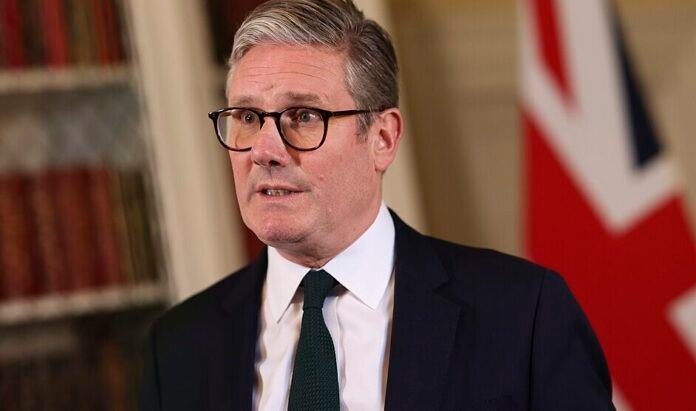Former civil service head says intelligence already showed China was a national threat
Sir Keir Starmer is facing mounting pressure over the collapse of a major espionage prosecution, after former cabinet secretary Simon Case challenged the government’s explanation for why the China spy trial was abandoned.
In a rare public intervention, Lord Case, who served as the UK’s most senior civil servant under both Rishi Sunak and Sir Keir, questioned the Prime Minister’s claim that prosecutors were unable to proceed because China was not officially classed as a national security threat at the time of the alleged offences in 2023.
Sir Keir had insisted that, because the formal designation of China as a threat had not yet been made, the government could not supply the evidence required by the Crown Prosecution Service (CPS) to sustain a prosecution. But Case pointed out that intelligence chiefs had publicly warned about Chinese espionage and cyber operations for years.
“Going back over years, we have had heads of our intelligence agencies describing in public the threat that China poses to our national and economic security interests,” Lord Case told The Telegraph. His comments suggest the government had ample grounds to back the CPS’s case.
The dispute centres on the decision to drop charges against Christopher Cash, a former parliamentary aide, and Christopher Berry, a teacher, who were accused of passing sensitive information to China under the Official Secrets Act. The CPS said it had sought confirmation from the government that China was a threat to UK national security — a requirement following a recent court ruling — but that no such evidence was provided despite months of requests.
The Director of Public Prosecutions, Stephen Parkinson, stated that without this confirmation the case “could not proceed”. However, senior figures across politics and the intelligence community have disputed this rationale.
Lord Macdonald, a former director of public prosecutions, said it was “self-evident” that China posed a national security threat, describing the collapse of the trial as “difficult to understand”. Former Home Secretary Suella Braverman accused Sir Keir of being “deluded” to suggest otherwise, saying MI5 had formally declared China a major threat as early as 2022.
Former MI6 chief Sir Richard Dearlove called for the case to be reopened, branding the government’s position “inexplicable”, while Tom Tugendhat, who served as security minister under the Conservatives, said he was told by senior officials that the prosecution had been a “slam dunk”. He alleged that “someone in government made a choice” to prioritise trade relations with Beijing over national security.
The collapse has become politically explosive because it coincides with Labour’s attempts to reset relations with China. Senior ministers including David Lammy, Ed Miliband, and Peter Kyle have visited Beijing in recent months as part of what has been described as a “charm offensive” ahead of Sir Keir’s planned visit next year. Critics argue that the government’s reluctance to back the CPS case fits into a broader pattern of diplomatic appeasement.
A former Whitehall official told The Telegraph that the suggestion the prosecution depended on whether China was formally named as an “enemy” was “madness”. “It has been perfectly clear that China has been acting as an enemy of the British state,” they said.
Legal experts have also voiced concern that the episode could undermine future espionage prosecutions. Jonathan Hall KC, the government’s independent reviewer of terrorism and state threat legislation, said he was examining whether the failure to prosecute could hamper the National Security Act’s application. “The key question,” he said, “is how government witnesses can articulate a single view on national security when departments have differing priorities.”
The saga has drawn attention to a growing rift between Britain’s security establishment and Downing Street. While the intelligence community has consistently warned of China’s aggressive cyber espionage and influence operations, Labour’s emphasis on trade and diplomatic engagement has raised fears that strategic caution is muting the government’s response.
Lord Case’s intervention — his first since leaving office — will deepen those concerns. His comments suggest that, far from being bound by legal technicalities, ministers made a political choice that allowed the case to collapse.
For Sir Keir Starmer, who has built his reputation on legal precision and national security credibility, the fallout from the China spy trial threatens to become a defining test of both.
